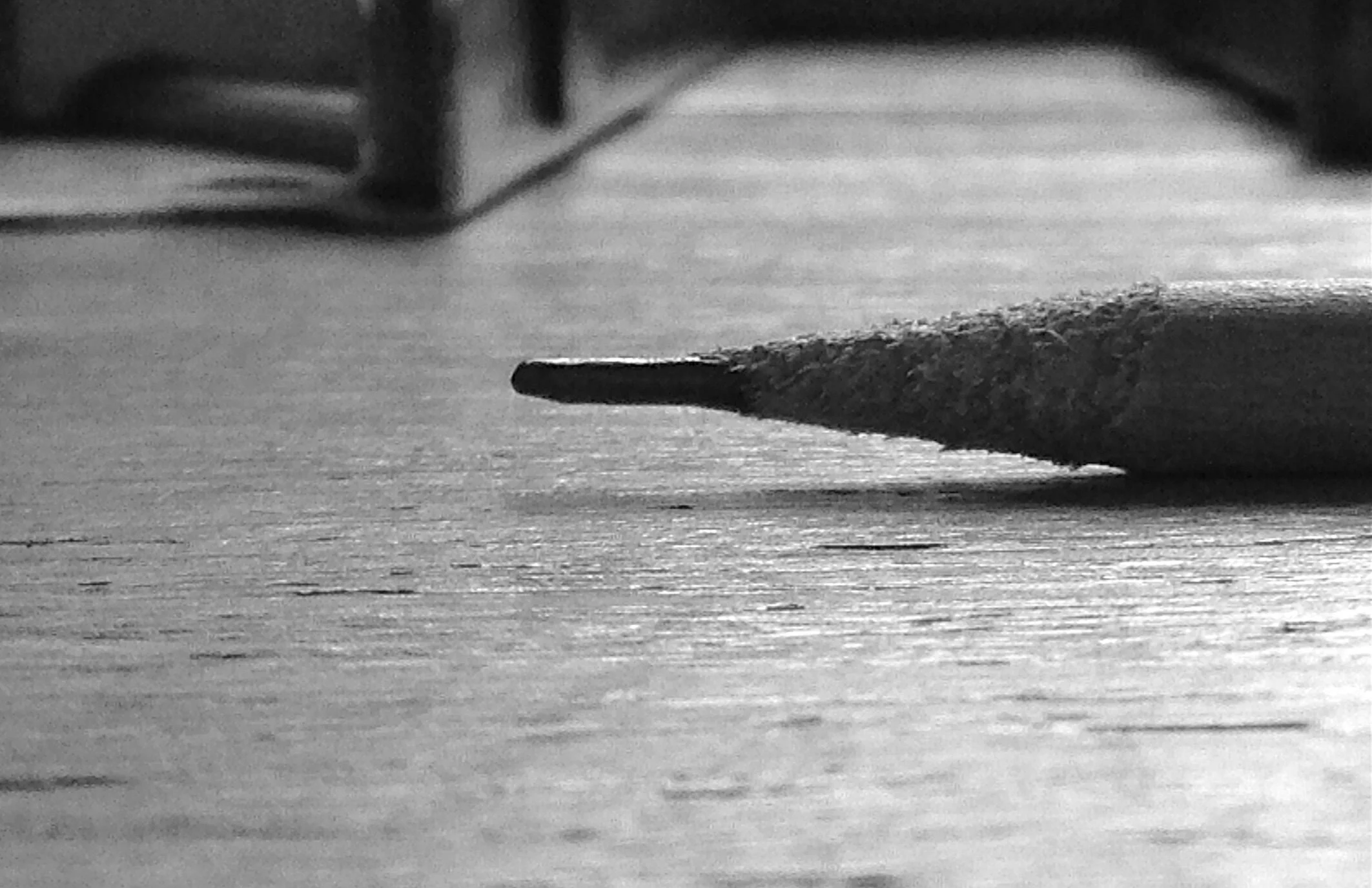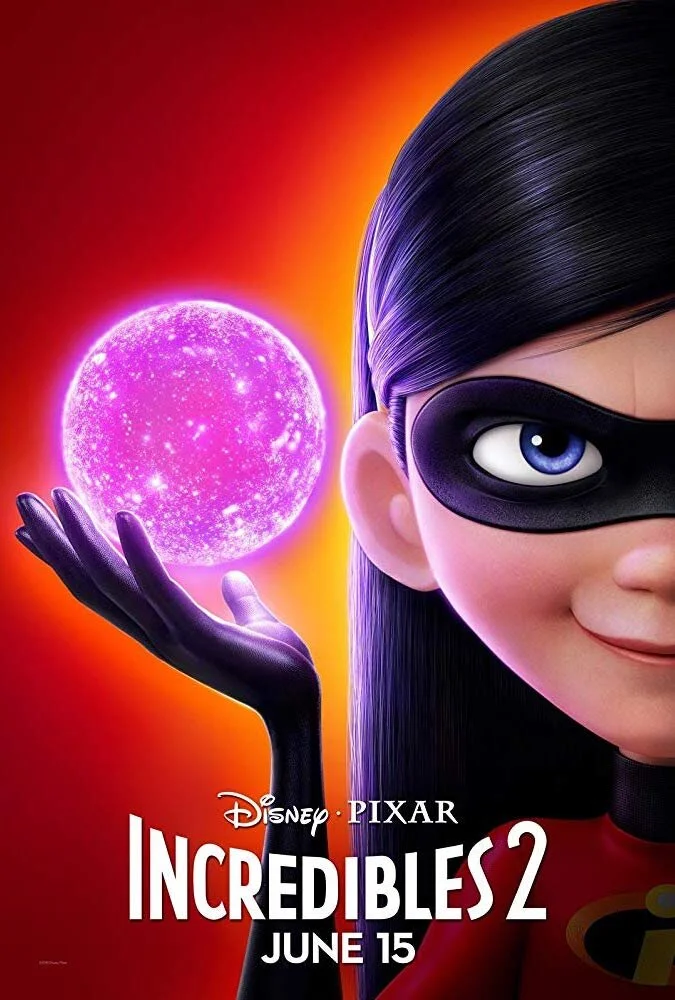Incredibles 2
/Helen Parr: Superheroes are illegal, whether it’s fair or not, that’s the law.
Bob Parr: The law should be fair. What are we teaching our kids?
Helen Parr: To respect the law.
Bob Parr: Even if the law is disrespectful?
quick fox: C+ | Copper
winding dragon
Before I begin, I want to say that I enjoyed watching Incredibles 2. If you’ve seen Incredibles 2 then you know it’s above-average, so I don’t need to convince you it a worthwhile experience. The duel between Jack-Jack and a hungry raccoon is easily in the top-ten funniest Pixar moments, and the animation is, again, a step above *dramatic pause* par. But when I left the theater, I couldn’t escape a nagging feeling that, for as much fun as Incredibles 2 is, there is much more it could have been. I want to explore what makes the sequel a little underwhelming, and the main reason is this: Incredibles 2 is poised to cut a knife deep into the heart of what it means to fight discrimination, and it never delivers.
The sequel had a responsibility that the original never did. At its core, The Incredibles is primarily concerned with the Parr family dynamics. But with Incredibles 2, Helen picks up the flag for Supers everywhere, becoming a symbol for a new social movement. It’s obvious that Pixar wants the audience to draw connections between the Supers fight for legal rights, to modern day examples like Black Lives Matter, MeToo, and Time’s Up. Each character is set up to represent a different facet of what it's like to live as an underprivileged member of society, at various stages of life. Helen is figure in the public eye, Bob is the parent working behind the scenes, Dash is the naive kid, and Violet is the teenager afraid of who she is.
Let’s start with Elastigirl. Her goal is simple: change public opinion on Supers. For the past fifteen years, the stereotype or misconception is that Supers are a threat, they’re freaks, they’re not really human....but we don’t see that. During the film, I kept waiting for Elastigirl to be confronted with harsh bigotry. I know, yeah, that sounds bad to wish on anyone, but in a film about navigating social bias, there's a surprising lack of it in Incredibles 2. Near the beginning of the movie, Helen’s main concern is her children. She wants Violet and Dash to grow up to respect the law and that’s great, but the plot basically forces her to go against that core belief. The reason she goes along with Winston and Evelyn’s publicity scheme is because it’s an opportunity to change the system itself, so her kids don’t have to grow up hiding who they are. The moment where Bob and Helen have a conversation about whether or not she should actually foray into the public sector is frustrating, because it foreshadows something that never comes to fruition. Chiefly, Helen never has to make a hard decision about whether she can continue martyring herself as the Super’s flag bearer due to the risk involved to her family.
As a quick sidebar, in 42 (2014), the film about Jackie Robinson breaking the color barrier, there’s a moment where Dodgers manager Branch Rickey tells Jackie that he’s looking for a player who’s “got the guts not to fight back” because people are going to do anything to try to show Jackie he doesn’t belong in the Major Leagues.
That’s the kind of honesty I was looking for in Incredibles 2. If this were real life, Elastigirl would be getting heckled on the streets as she zips by on her motorcycle, people would send her family death threats, news reporters would question her if she’s being a good mother by setting a bad example to her children. None of this happens. The film pushes Helen into being a political figure without any of the negative consequences. Maybe she could have saved the life of a citizen who is openly against Supers. Maybe she could have been forced to listen to a panel where members of the public explain why they don’t feel safe with Supers around. There just needed to be something more in the film to make Elastigirl’s fight more personal. Even a line or two where Winston or Evelyn levels with Helen and explains all the risks involved would have raised the stakes a bit higher, and shown the audience how much the Supers have to overcome.
Meanwhile, Bob does decently in fulfilling his role in Incredibles 2. With Helen doing hero business, Bob is now the parent in charge of raising Violet, Dash, and Jack-Jack. Understandably, he is overwhelmed by Jack-Jack, and an endless supply of cookies is the only defense against the youngest Parr sibling disappearing into another dimension. But Bob also feels jealousy towards his wife. As we learned from the first film, Bob does not do well sitting on the sidelines. His greatest act of restraint is when he chooses to let his old Incredible vehicle be sold at an auction (instead of remotely summoning it like it’s KITT), avoiding a guaranteed PR disaster. His greatest (well-intentioned) mistake is when he brings the kids to a restaurant run by Tony’s family so they can all informally meet Tony. (Spoiler: it’s easily the worst moment in Violet’s life. Not even being shot out of sky by a missile and crashing into the middle of the ocean is worse than this.)
The biggest scene where Incredibles 2 misses an opportunity with Bob is after the restaurant debacle. Violet finds her dad on the couch, and there share a brief sentimental moment. It’s sweet, but one that could have packed a more powerful punch. Bob has always been Mr. Incredible, a man of action. In this moment, however, Violet just needs him to be her dad. Here, I was hoping for Bob to offer some fatherly advice — maybe share a story about how he struggled with his strength growing up — because it’s actually the first time in either Incredibles that Bob and Violet have a father-daughter bonding time together. It would have been emotionally fulfilling for both characters as Violet spends the majority of the film trying to reject her Super identity, but Bob could have given her reason why she should embrace it.
In general, Incredibles 2 doesn’t know how to utilize Violet and Dash. In part one, they’re caught up in an island adventure, but without that adrenaline rush, part two doesn’t know how to return them to normalcy. It tries — Dash’s main obstacle is math homework and Violet’s challenge is forgotten teenage romance, but Incredibles 2 repeatedly shies away from meaningful conflict with the Parr children. Dash, especially, has a multitude of potential leftover from The Incredibles. In the first film, Dash wants to compete in sports, which is a point of contention between Helen and Bob, but eventually joins the track team. For some reason, the sequel doesn’t continue that plot even though it’s rife with opportunity. Maybe Dash loses his passion for doing track because he doesn’t get any fulfillment out of beating kids who don’t have of prayer of winning. Maybe another parent or runner accuses Dash of being a Super, forcing Bob to choose whether to stand by his son or tell Dash that he has to give up competing. Once again, this is a plot arc the film foreshadows and never delivers. During the family dinner in the motel, Dash seems more concerned with have a Chinese take-out meal of all vegetables than about living in a motel. His naive nature feels like it’s supposed to be rattled by a reality check. A disgruntled parent or something that would force Dash to question his desire to race would have a maturation for his character, but Incredibles 2 simply quit on even developing Dash at all.
The missed opportunities with Violet have been partly covered earlier, and while she has humorous moments as the distraught, romantically awkward teenager, Incredibles 2 should have pushed it farther. With Violet, having Tony lose his memories of her is bad enough, but what if Tony has a deep mistrust of Supers I’m not saying Pixar should have made Tony a racist (Super-ist?), but they essentially had a blank slate with Tony and chose not to do anything with his character. He doesn’t do anything besides not know who Violet is. For Tony’s entire life, Supers have been illegal. I don’t what Tony’s opinions are on Supers, but at the very least, you’d think he’s share some common misconceptions about Supers. An off-handed comment, a misguided remark — I really wanted something to shape Tony’s character that directly affects how Violet considers her own Super identity.
All of the elements that Incredibles 2 lacked weren’t far off from completing the story. Perhaps the fact Brad Bird’s production schedule by a year (Disney switched the release dates for Incredibles 2 and Toy Story 4) contributed to the feeling that the storyboarding was rushed. None of the suggestions I have would have too much screen time. The entire setup of Incredibles 2 is to tell a story about a family fighting discrimination, except time and time again, it not fails to acknowledge the challenge but completely ignores it altogether. Overall, Incredibles 2 is a solid but unspectacular film that needed to make more of an effort to build their universe, and truly consider what would it be like for people to live in a society where Supers are illegal.



